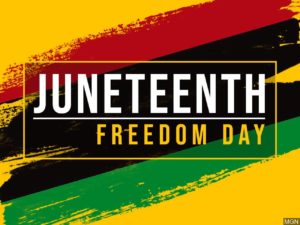 From its very founding, the United States had a precarious relationship with freedom. While the Declaration of Independence clearly stated that “all men are created equal,” the actual practice of enslaving people tested whether, in practice, that ideal could ever be a reality. Enslavement was the single most divisive issue of the early republic. When Southern states perceived that Abraham Lincoln’s election threatened what they believed was their “right” to enslave others, those states attempted to break the bonds of the United States to each other. The result was civil war, with some 800,000 or more Americans perishing.
From its very founding, the United States had a precarious relationship with freedom. While the Declaration of Independence clearly stated that “all men are created equal,” the actual practice of enslaving people tested whether, in practice, that ideal could ever be a reality. Enslavement was the single most divisive issue of the early republic. When Southern states perceived that Abraham Lincoln’s election threatened what they believed was their “right” to enslave others, those states attempted to break the bonds of the United States to each other. The result was civil war, with some 800,000 or more Americans perishing.
President Abraham Lincoln issued his Emancipation Proclamation on January 1, 1863, declaring that all enslaved people located within states in rebellion against the United States “shall be then, thenceforward, and forever free.”
Before that, some enslaved people had already found ways to emancipate themselves, with groups like the Underground Railroad, by finding a detachment of the United States Army, or simply fleeing those who enslaved them and making it successfully to a free state. As the United States Army liberated states in rebellion, enslaved people there were freed. However, not everyone was aware of emancipation, even after the Civil War was over. In Texas, it wasn’t until US General Gordon Grainger issued General Order #3 on June 19, 1865 that:
“The people are informed that in accordance with a Proclamation from the Executive of the United States, all slaves are free. This involves an absolute equality of personal rights and rights of property, between former masters and slaves, and the connection heretofore existing between them, become that between employer and hired labor.”
From that day, June 19, came a jubilee celebration for the last of the enslaved people of the United States, who finally learned of their new freedom. Juneteenth, as it became known, commemorates this day.
Just a few days ago, the importance of what Juneteenth represents was recognized by the United States with the designation of June 19, “Juneteenth,” as a federal holiday.
Learn about “The Historical Legacy of Juneteenth” at the National Museum of African American History & Culture: https://nmaahc.si.edu/blog-post/historical-legacy-juneteenth.